by Thomas Kneier
 We had negotiated our mid-life passage without the proverbial crises. My wife pierced another hole in her ears for a second set of earrings. I started wearing contact lenses because she told me it made me look younger. That was about it.
We had negotiated our mid-life passage without the proverbial crises. My wife pierced another hole in her ears for a second set of earrings. I started wearing contact lenses because she told me it made me look younger. That was about it.
The youngest of our six children was then 9 years old. Each milestone he had passed gave us a growing sense of freedom: last one out of diapers, last to tie his shoes, ride a bike, learn to swim, go to school. There was a sense of anticipation. What might we do with the next chapter of our life? After 20 years of marriage, I sensed we were on the verge of a whole new direction in 1996.
My wife, Madeline, had been to the doctor to determine the reason she had been skipping her periods every so often. One of those visits fell on June 17. It was her 44th birthday, but I’m the one who got the surprise: Madeline was pregnant. I stifled the question “How is that possible?” as it tried to force itself past my lips. (After six children, I guess I knew pretty well.) We walked around for the next week in a daze. This can’t be happening, I thought. We have to start all over again? What about the new season for our marriage? I’m not ready to accept another child!
Don’t misunderstand me. I love our children. I love family life. And I love my wife. Ever since our dating years in college, we had tried to cooperate with God’s will for us. But it took this unwanted announcement to show me how much selfishness was still in my heart, and how much I still preferred my will. Yet as each day passed, I became less resistant, more accepting.
My fledgling hope soon confronted a new challenge. The sonograms indicated that something might be wrong with our baby. We were sent to specialists with more sophisticated equipment.
“I’m sorry,” the doctor said. “There appear to be multiple complications. The ‘fetus’ appears to have club feet. There is no sign of the presence of a bladder. It may be external to the body. And the brain is not developing as it should. There is an empty space at the base of the brain. They rarely make it to full term in cases like this. Those that are born are likely to die within the first year.”
Madeline began to quietly cry. “I presume you’ll want to talk with our genetic counselor about terminating the pregnancy,” he added.
His comment ignited an anger in me that fashioned an instant determination. “No,” I quickly responded. “That is not an option!”
Still, something in me grasped at his bleak outlook. It’s better that our baby die than to live with so much suffering. Lord, please don’t let our baby suffer long. Let death come quickly. It’s better that way. But better for whom? I thought. Better for me, of course. For Madeline and me. I didn’t want us to go through the pain of watching a child suffer. As I look back now, it is so humbling to see how quick I was to accept the word of a man, and how slow to seek and accept the word of God.
A more definitive diagnosis could not be made without an amniocentesis. At Madeline’s age, this was considered a high-risk pregnancy. She decided that she would rather be prepared than live with uncertainty for the remaining six months. The results came back on August 30; our 21st wedding anniversary. Our child was a boy — and he had Down Syndrome. The brain diagnosis was described as possible Dandy Walker Syndrome. His urological condition was called Bladder Exstrophy. It had no connection to his Down Syndrome. This rare disorder occurs in only one out of every 30,000 births. The prevalence of Down Syndrome is approximately one in every 800-1,000 births. The odds of a child being born with both is exceedingly rare. We began to affectionately refer to our son as “one in a million.”
These newest developments forged a stronger bond between me and my son. He was so fragile and weak. He would need me perhaps more than any of my other children. Then it dawned upon me. I could give him my name. Although I had five other sons, it had never seemed appropriate before. Now it seemed perfect. I would be proud to have him take my name; proud to identify with him. That same day my wife came to me with an idea she had gotten in prayer—the notion of naming our son after me. His name would be Thomas. It was a small sign to us that God was very much involved in the details of our lives. He was still in control of this seemingly uncontrollable situation.The months went by in slow motion. We passed the time trying to learn all we could about our son’s genetic and medical conditions. One specialist who would be on the team in the delivery room tried to prepare us for the many possibilities. “Don’t worry about his urological condition,” he offered in a helpful tone. “If there’s not enough tissue for male genitalia, we will be able to form female genitalia instead. With hormone treatments, you will be able to raise a daughter, and she will never know the difference.”
We nodded our heads stoically. When we got in the car, we looked at one another in disbelief, and suddenly started to laugh. It was either that or cry. He acted as though this were the most normal thing in the world, never considering that we might oppose such a procedure!
On January 28, our waiting ended. At 6:45 p.m. he was delivered without complications. I was the first one to hold him. I held my breath as I checked for all the abnormalities. Hands, feet, fingers, toes—everything looked normal. He was breathing on his own, too. Not an automatic thing for babies with Down Syndrome.
“You made it, Thomas. You did it! You proved them wrong,” I kept telling him. I wanted to take him right then and there to the prenatal specialist and say , “Look at our beautiful son. You didn’t even want to give him a chance!”
His bladder was indeed outside of his abdomen, but the urologist had assured us that this could be surgically repaired in the first 48 hours. As I drove home that night, it occurred to me that it was the very day of St. Thomas Aquinas’ feast, after whom our son was named. He may have disabilities, I thought, but he knows how to honor his patron.
Thomas was in the hospital for three weeks during which time the neurologist tested for brain anomalies. At last the results came back—no Dandy Walker malformation, no apparent brain dysfunction. We thankedGod for the many family members, friends and unknown prayer warriors who had interceded for our son’s healing in utero.
Still, his first year was not without difficulties. The urology surgery required that he be immobilized from the waist down for six weeks. During that period he developed a serious urinary tract infection and had to be hospitalized again. At six months, the audiologist who tested him told us that he wasn’t hearing. Three months later that diagnosis was reversed. Initial misdiagnosis or the results of prayer for his healing?
In his first four years, Thomas had four surgeries, five outpatient surgical procedures, and an untold number of tests and examinations. But he made progress, too. He sat up for the first time at 12 months. He took his first steps when he was 3 years and 2 months. He needed a walker for a while, but now only requires braces on his ankles. He said his first word at 2 1/2 years. He has yet to put together words in a sentence. It is too early to assess the level of his mental retardation. Still, each minor development feels like a major victory to us.
One day I was reflecting with Madeline that we were back to checking off milestones again. I joked that God was like an orchestra conductor saying, “One more time, with feeling.” Then I saw that the image was more fitting than I realized. Our family has been our life’s work—our “Opus” for God. In a symphony, the ending often slows down significantly to emphasize each note and bring the piece to its dramatic culmination and conclusion. The musical term for this is “ritardando” (the double meaning was not lost on me). Thomas is the culmination of the Kneiers’ Opus. He has already brought us some of our greatest joys and our deepest sorrows. But then, tears and jubilation are inextricably entwined with any great masterpiece!
An update from the author: Tommy recently celebrated his eleventh birthday party at the bowling alley with three of his best friends from school. He is in the fifth grade, and his favorite subjects are music and computer. One of the teacher aids nicknamed him “The Senator” for the way he works the lunchroom every day, going from table to table shaking hands and giving high fives. A big red pimple showed up on his nose last month as an unwelcome reminder to his parents that he is now a preteen—a notion quite incongruent with the diapers we still change daily, waiting for modern medicine to devise a surgery that will end his incontinence. Dichotomies like these have typified Tommy’s growing up years.
He still can’t tie his own shoes over his orthotics, but he runs with the best of them in gym class. His speech is barely discernible, but one classmate wrote in Tommy’s Star of the Week notebook, “You’re lucky to make friends as easily as you do.” He passes the milestones more slowly and less frequently than did his six siblings, but each one generates a Super Bowl-worthy celebration from Mom and Dad. Like riding a two-wheeler in the driveway at age six—okay, it had training wheels (and still does). That first hit playing Challenger baseball at age eight followed by his fist-pumping arrival at first base. And last May standing at the altar of St. Thomas More church with ten other boys and girls who had just received their First Communion, proudly displaying his honorary certificate in his slightly askew black suit and tie.
During this last time through the Opus, we’ve come to realize slowly (there’s that word again) that it isn’t as important to reach the end as it is to enjoy each movement to the fullest.
Madeline is a para-educator in Tommy’s school district, and Tom is the Director of Operations at Catholic Charities of the Diocese of Pittsburgh. You can contact him at tkneier52@verizon.net.
Great Down Syndrome UTubes
[youtube=http://www.youtube.com/watch?v=BKlm-kxFzzo]
[youtube=http://www.youtube.com/watch?v=jVxz71ygHbk]
[youtube=http://www.youtube.com/watch?v=AZSfAJEpElc]

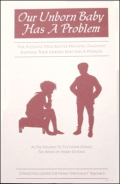

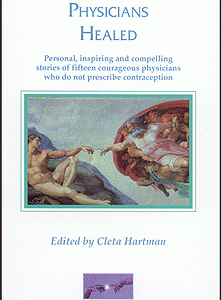
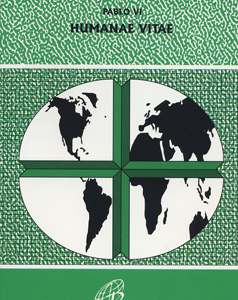
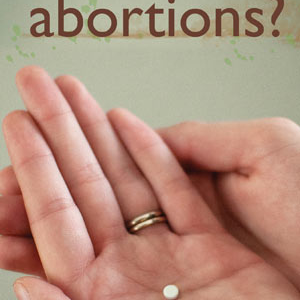

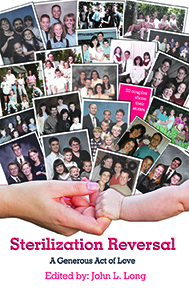

Thanks a lot for this beautiful love story!!